The game Bingo dates back to sixteenth century Italy, but only reached North America in 1929. By the mid-30s it had taken the country, particularly women, by storm. In the year 1936 the the word “bingo” appears more frequently in the Reading Times than all 79 years worth of editions published before it. Everyone was cashing in on the craze; civic clubs, private halls; even religious institutions. Church bingo functions are widely attributed to the game’s increasing popularity during this time period.
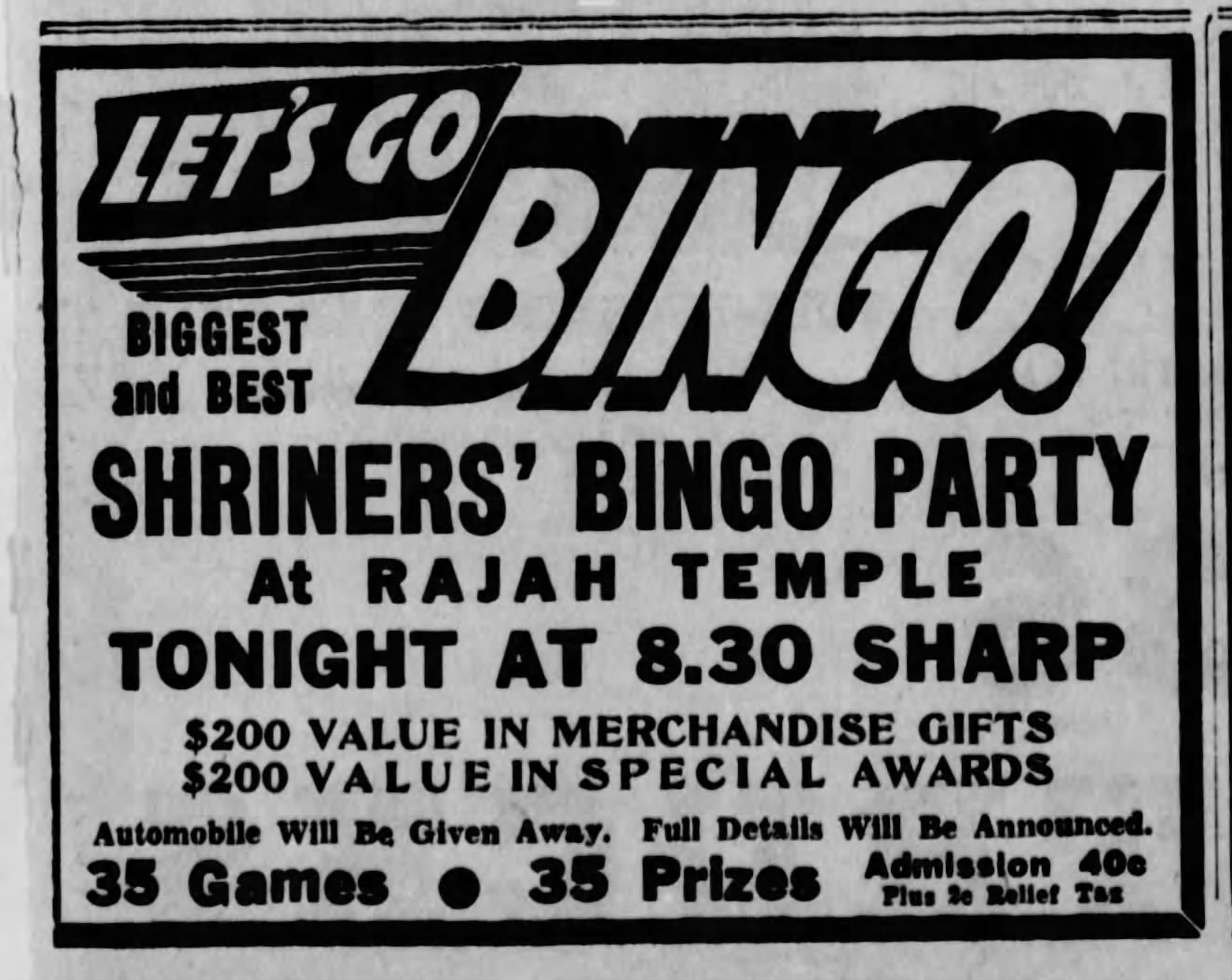
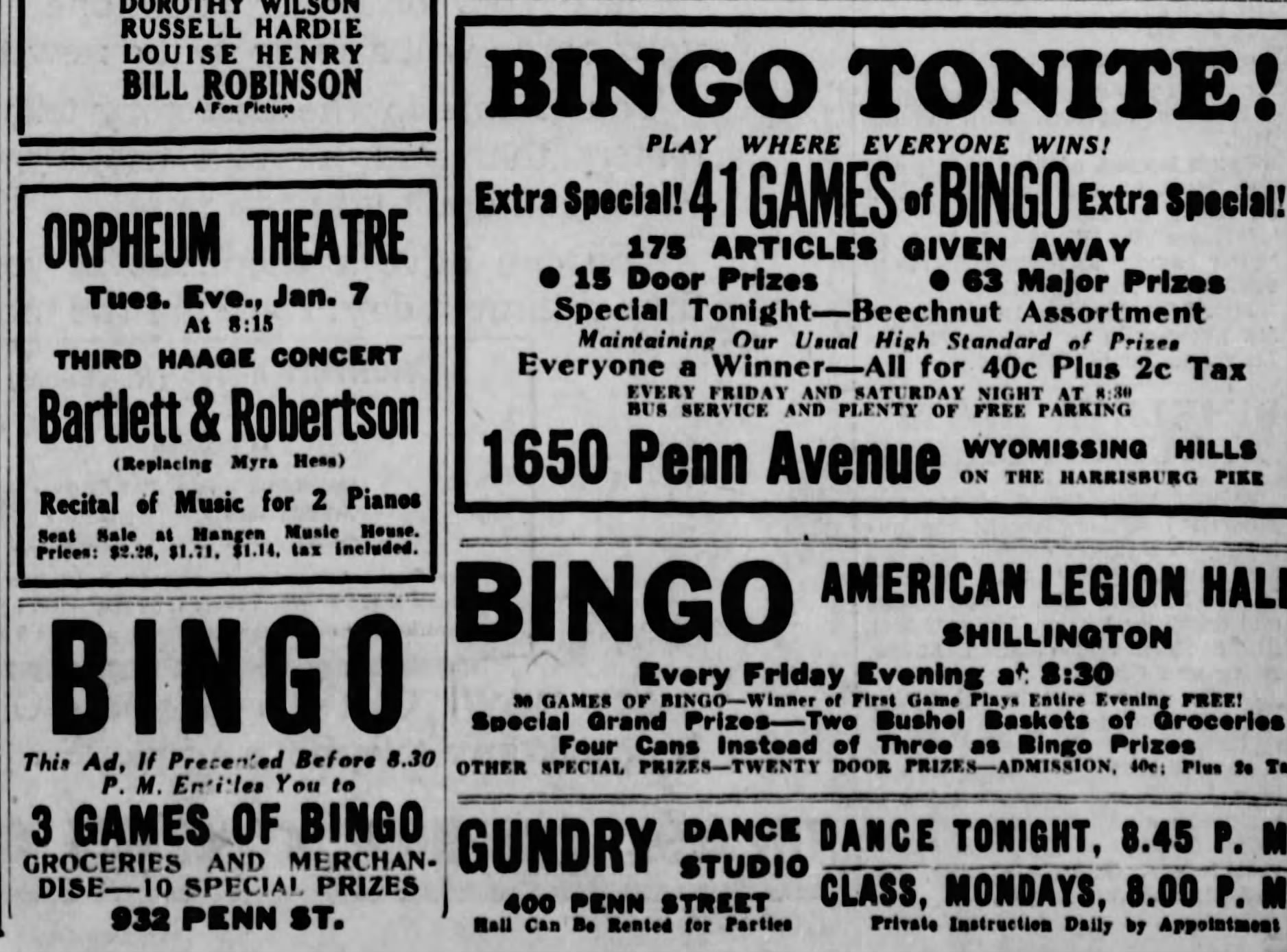
The first signs of trouble began in early 1938 when Judge Harry McDevitt of the Philadelphia Court of Common Pleas found the game to be a form of gambling, which was illegal at this time. McDevitt’s opinion was that bingo incorporated the three essential elements of lotteries; consideration, prize and chance. While this opinion was the first of its kind, no legislation was signed into law. Yet some District Attorneys in the Commonwealth took it upon themselves to enforce McDevitt’s opinion as such.
Bingo related unrest began in Philadelphia in early May, when the Reading Times reported that Superintendent Edward Hubbs of the Philadelphia police force had ordered his officers to seize all bingo equipment played in theaters or sponsored by civic groups.
In early June Berks County District Attorney John Rieser enlisted the help of a Grand Jury to decide his stance on the game of bingo. With thousands of Berks Countians patronizing bingo halls on a weekly basis, Rieser obviously felt a line needed to be drawn. The Grand Jury counseled, according to a June 8th Reading Eagle article,
We recommend in the matter of lotteries and other gambling schemes the district attorney extend his efforts against all natures of so called “charitable benefits.” customarily being conducted by civic, charitable, social and even religious organizations and institutions, which activities technically fall into the category of gambling. These cannot be any more justified than the privately operated commercial type which are so commendably being eliminated.”
Grand Jury 1938 recommendation on the Bingo Ban
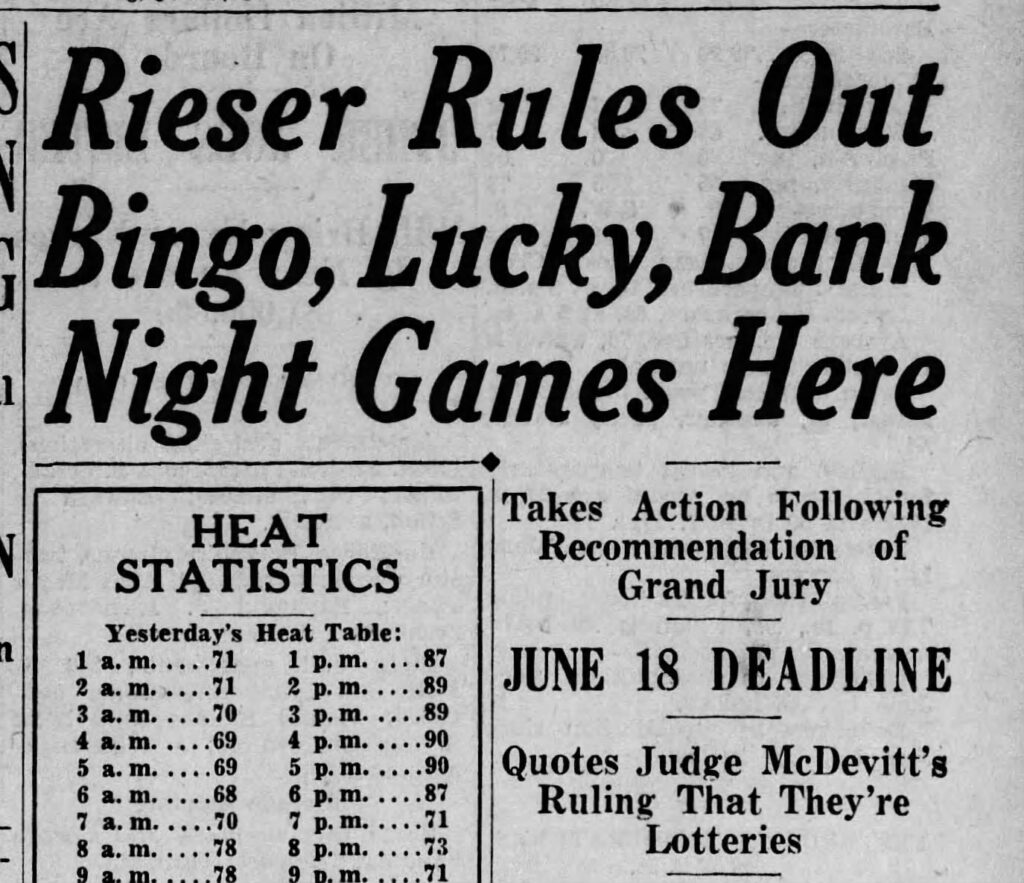
With that Rieser made his stance known and gave Bingo operators ten days to liquidate all assets. Of course they complied and bingo was never again played in Berks County. Yeah, right.
Bingo Operators Fight Back
Within three days the county’s leading bingo hall operators organized 5000 of their patrons to petition the bingo ban. Imploring Rieser look further into how Bingo was played in Berks County, they argued it is a form of entertainment organized by legitimate businesses.
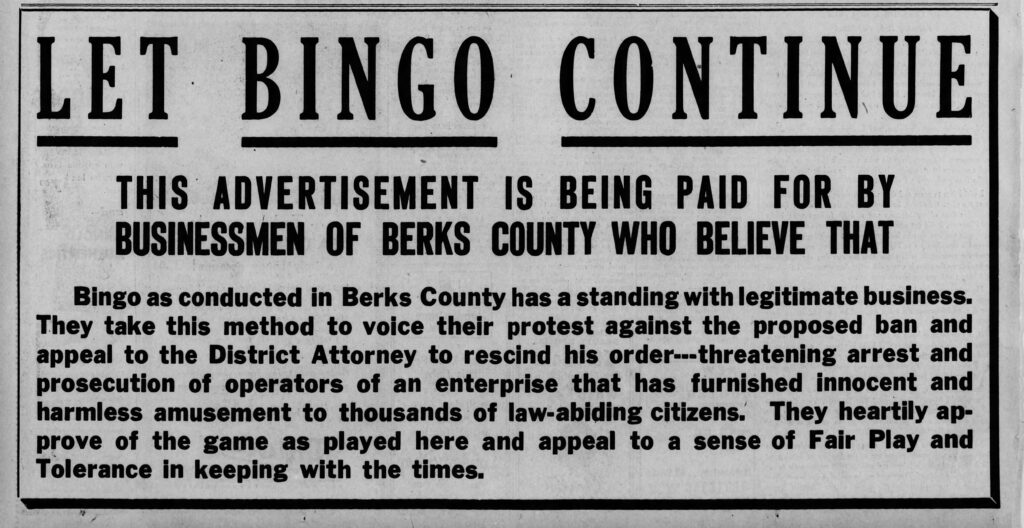
The impending date of June 18th arrived and bingo was officially deemed illegal gambling. The halls went quiet for about a month.
Bingo Raid
On July 16th, 1938 authorities raided the Little Brown Jug, an establishment located on Penn Avenue in Wyomissing Hills at that time. Five men were arrested for operations of bingo, facing a test trial challenging this new interpretation of the law. The question was whether the prosecution could make gambling charges stick in court.
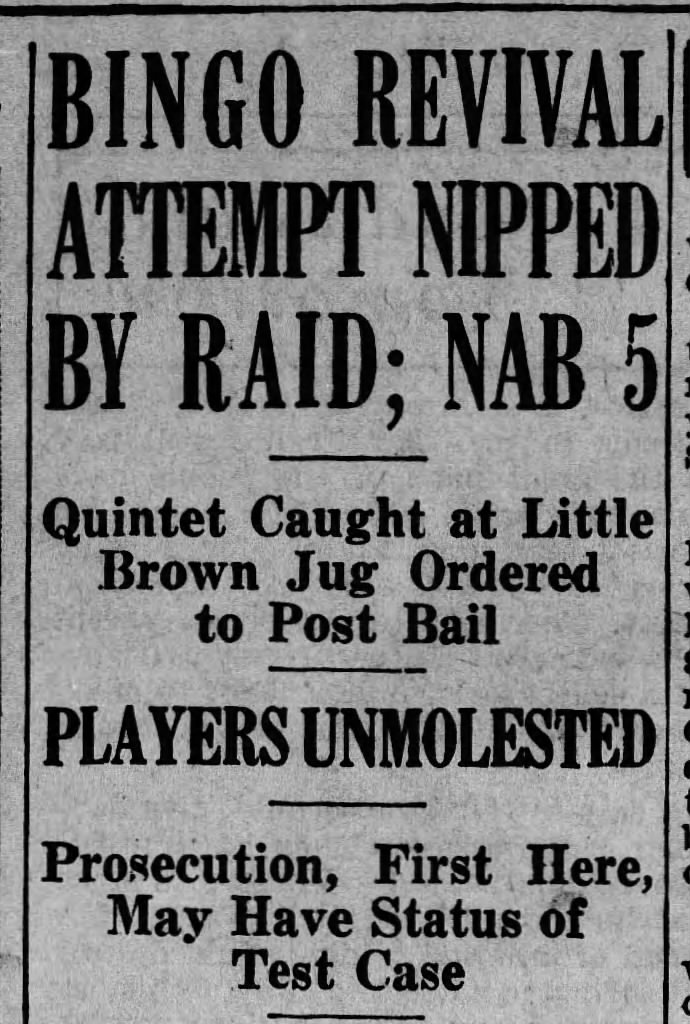
After the raid patrons of the Little Brown Jug were offered their admission fees back by operators. Most opted to let the operators keep it with the promise that the money would be used to fight the bingo ban in court during their trial.
Stuck amidst this drama was the Tower Hotel atop Mount Penn. The property was owned by the city of Reading who was leasing it to a bingo hall business. The city had struggled to find use for the building for quite some time and District Attorney Rieser’s decision effectively cost them this steady form of revenue. Questions about the building’s future arose. Despite the dramatic Times article below, the Tower Hotel would hang on for two more decades before being razed in 1959 for the same reason.
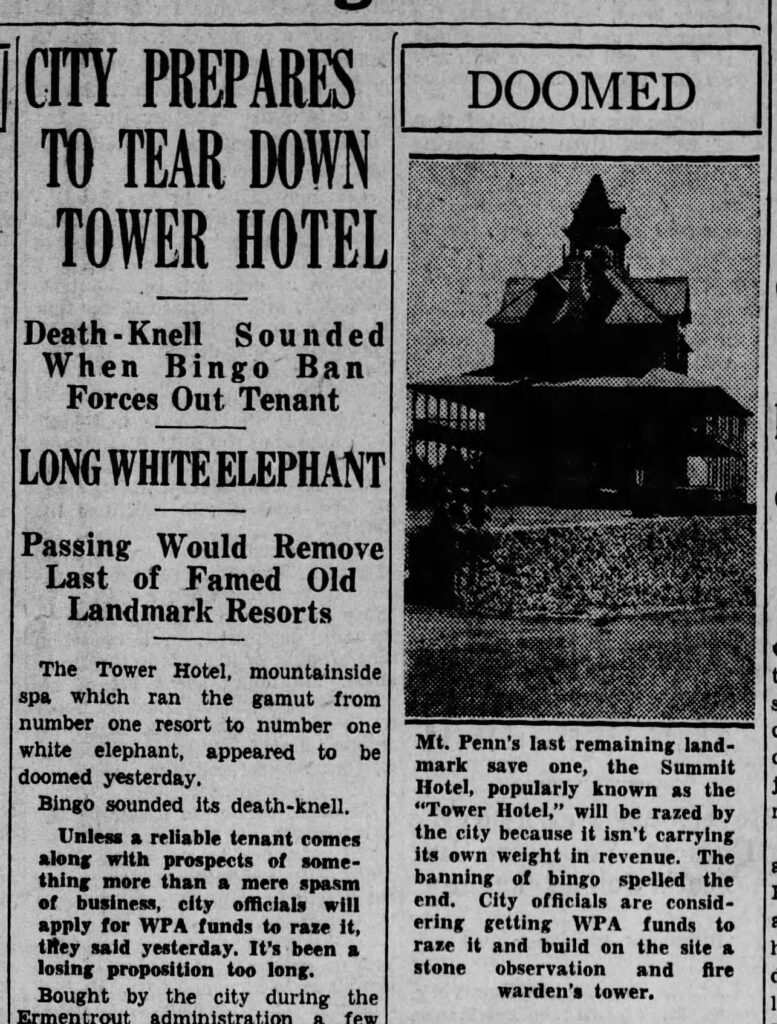
In an opinion piece published on August 25th, 1938, a “citizen” slammed the bingo ban and John Rieser. All five counties which border Berks had not banned bingo, and many were leaving the county to continue to partake in the game. This, the citizen argued, would cost the county significant tax revenue over the course of the year.
The Trial
The trial for the five renegade bingo operators began on September 10th, 1938. Their attorney, M. Bernard Hoffman, said he would move for dismissal of the cases on the grounds that bingo is not a gambling game “but a game for entertainment and amusement only“.
Seven witnesses were called to testify in which the jury got to hear the details of the bingo bust. One of them was officer Grover Snyder, who entered the Little Brown Jug, paid $10 for which he was given a 40 cent bingo card and joined roughly 150 other players. Snyder testified that at the end of the game a winner was given a brown bag, roughly 15 inches across. When pressed by the defense he admitted he did not know the contents of the winner bag.
When Assistant County Detective Fred Marks finally entered the establishment and announced they were under raid, he let it be known that no players were going to be arrested and actually let them finish out the game they were playing.
The trial was a quick one with the jury deliberating for only two hours. On September 15th the Times headlines read, “NOT GUILTY, HALLS TO REOPEN“.
District Attorney John Rieser issued a statement immediately in which he said he interpreted the jury’s decision to mean, “that as long as bingo is not operated by racketeers and as long as prizes are small merchandise, incidental to the amusement, which should be the primary attraction, that bingo is considered not gambling“.
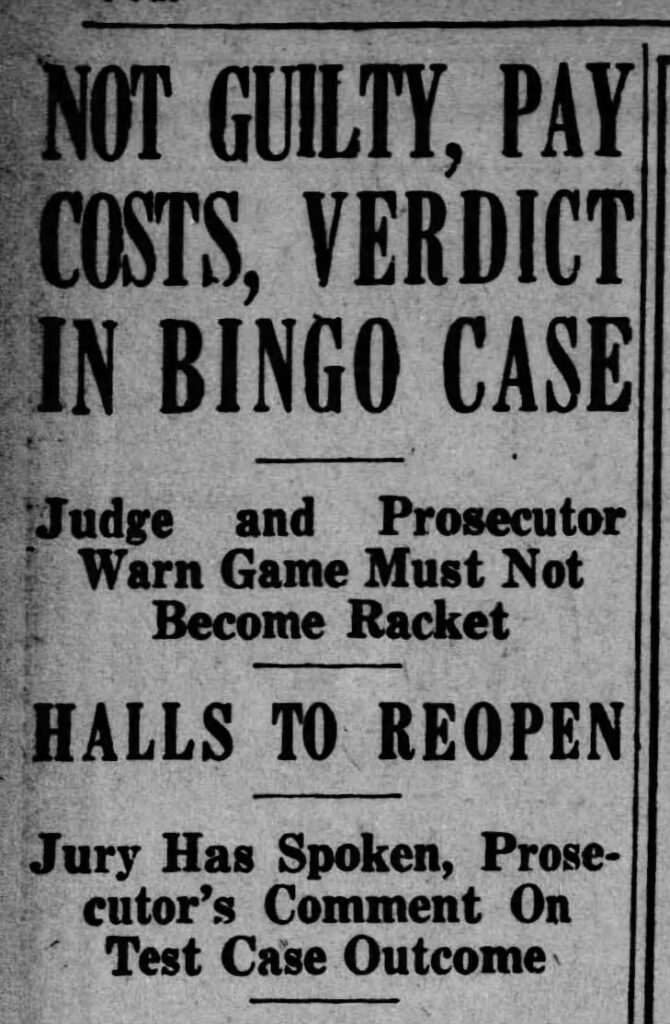
On September 22, 1938 the headline, “Rieser to keep Hands off Bingo” ran in the Reading Times, in which he reiterate his stance that as long as the game didn’t become a racket, he would not further prosecute. So ended the great bingo ban of 1938, and quite possibly the largest waste of time and resources in Berks County history.
Fun Fact: the word “bingo” appears 32 times in this article

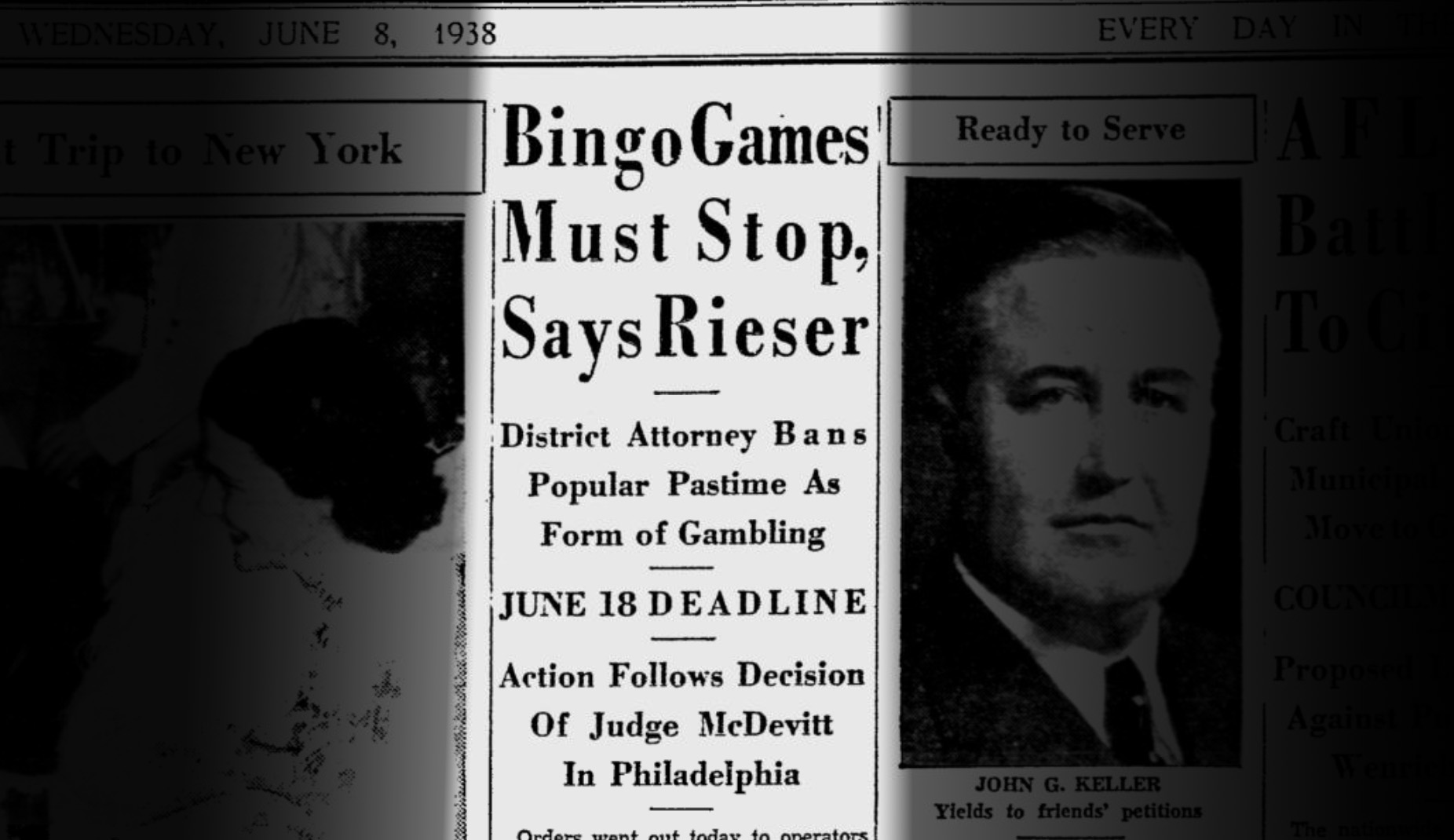
Very interesting. My grandmother would play bingo regularly. My other grandmother would attend card parties regularly, and win door prizes sometimes. I have a brunch set of amber-colored dishes she won – to start my “hope chest.”
This was very interesting. I had never heard of a bingo ban. I wonder where the Little Brown Jug was located at Wyomissing Hills on Penn Avenue?